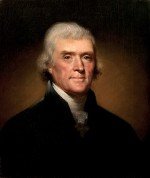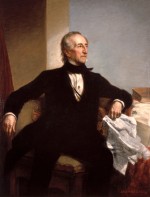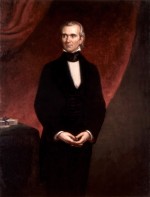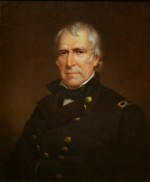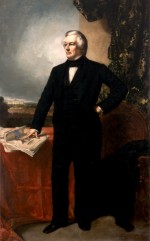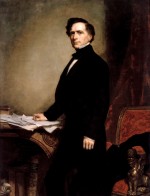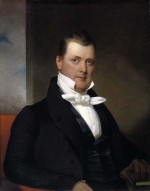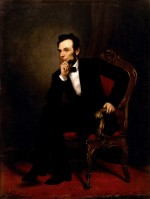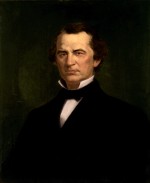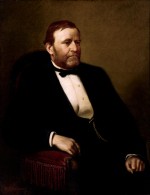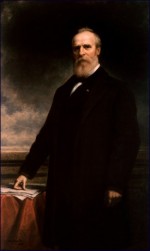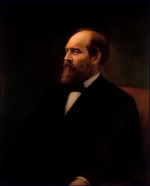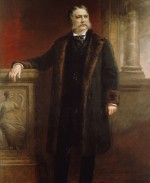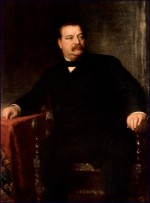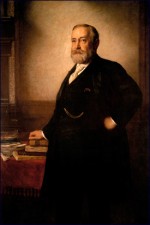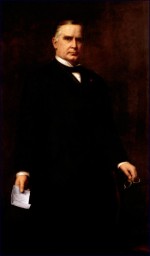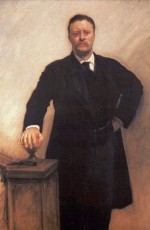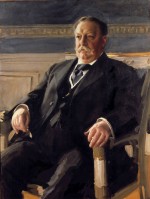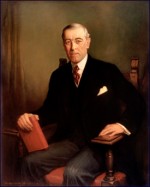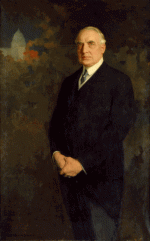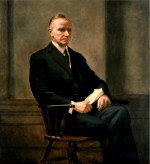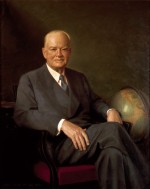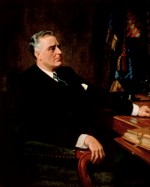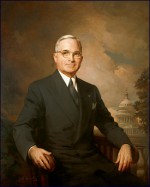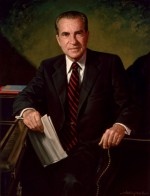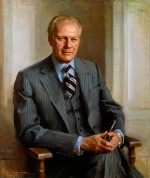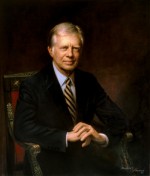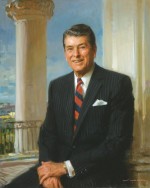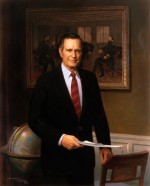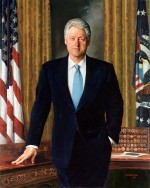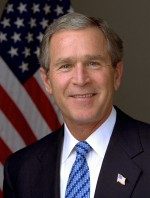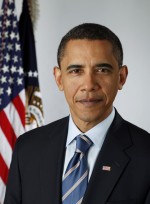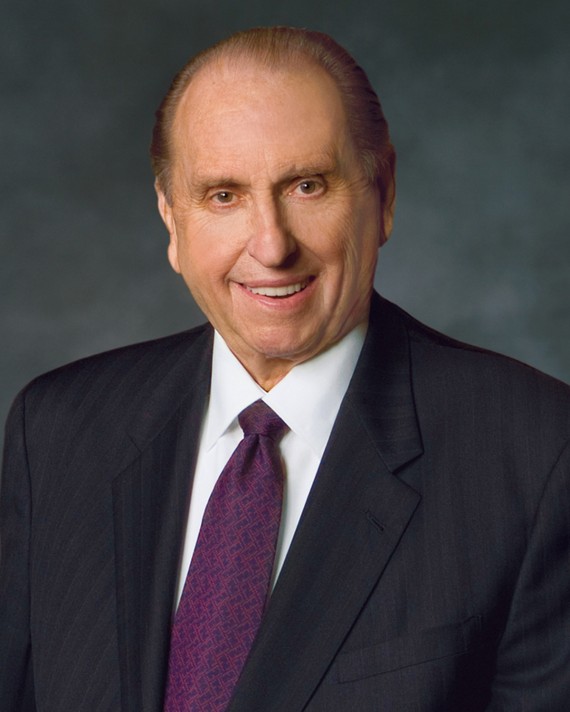The State of the Union
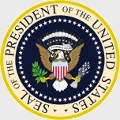 The annual address by the President to the Congress reports on the condition of the nation and outlines the President’s legislative agenda and his national priorities. Before Warren Harding most presidents delivered the State of the Union as a written report.
The annual address by the President to the Congress reports on the condition of the nation and outlines the President’s legislative agenda and his national priorities. Before Warren Harding most presidents delivered the State of the Union as a written report.
He shall from time to time give to Congress information of the State of the Union and recommend to their Consideration such measures as he shall judge necessary and expedient. Article II, Section 3
The quotes herein are from State of the Union messages, except for William Harrison (died of pneumonia) and James Garfield (assassinated). I use instead their Inaugural addresses.
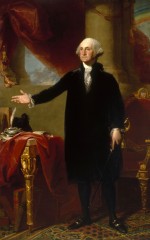
George Washington
(1789–1797)“Uniformity in the currency, weights, and measures of the United States is an object of great importance, and will, I am persuaded, be duly attended to.”
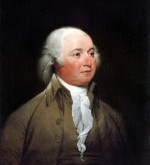
John Adams
(1797–1801)“The commerce of the United States is essential, if not to their existence, at least to their comfort, their growth, prosperity, and happiness.”
Thomas Jefferson
(1801–1809)“We continue to receive proofs of the growing attachment of our Indian neighbors and of their dispositions to place all their interests under the patronage of the United States.”
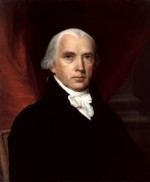
James Madison
(1809–1817)“I should fail in my duty in not recommending to your serious attention the importance of giving to our militia, the great bulwark of our security and resource of our power, an organization best adapted to eventual situations for which the United States ought to be prepared.”
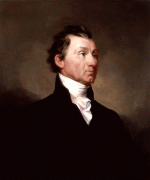
James Monroe
(1817–1825)“In our intercourse with each [European power] due attention continues to be paid to the protection of our commerce, and to every other object in which the United States are interested.”
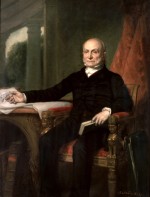
John Quincy Adams
(1825–1829)“…[Washington] informed them that the returns gave the pleasing assurance that the population of the United States bordered on 4,000,000 persons. At the distance of 30 years from that time the last enumeration, five years since completed, presented a population bordering on 10,000,000.”
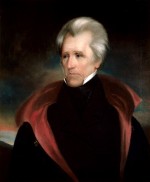
Andrew Jackson
(1829–1837)“There will have been paid on account of the public debt during the present year the sum of $12,405,005.80, reducing the whole debt of the Government on January 1st, 1830 to $48,565,406.50, including $7 millions of the 5% stock subscribed to the Bank of the United States.”
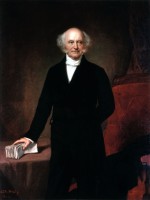
Martin Van Buren
(1837–1841)“Britain and the United States are of the most friendly character, and I am well satisfied of the sincere disposition of that Government to maintain them upon their present footing.”
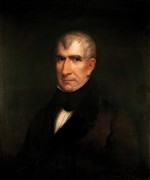
William Henry Harrison
(1841)“Not-withstanding the limited sovereignty possessed by the people of the United States and the restricted grant of power to the Government which they have adopted, enough has been given to accomplish all the objects for which it was created.”
John Tyler
(1841–1845)“It is believed that the United States is the only nation which has by its laws subjected to the punishment of death as pirates those who may be engaged in the slave trade.”
James Polk
(1845–1849)“The terms of annexation which were offered by the United States having been accepted by Texas, the public faith of both parties is solemnly pledged to the compact of their union.”
Zachary Taylor
(1849–1850)“The predictions of evil prophets, who formerly pretended to foretell the downfall of our institutions, are now remembered only to be derided, and the United States of America at this moment present to the world the most stable and permanent Government on earth.”
Franklin Pierce
(1853–1857)“France was the early and efficient ally of the United States in their struggle for independence. From that time to the present, with occasional slight interruptions, cordial relations of friendship have existed between the Governments and people of the two countries.”
James Buchanan
(1857–1861)“On the 15th of September, 1857, Governor Young issued his proclamation, in the style of an independent sovereign, announcing his purpose to resist by force of arms the entry of the United States troops into our own Territory of Utah.”
Abraham Lincoln
(1861–1865)“That portion of the earth’s surface which is owned and inhabited by the people of the United States is well adapted to be the home of one national family, and it is not well adapted for two or more.”
Andrew Johnson
(1865–1869)“The Union of the United States of America was intended by its authors to last as long as the States themselves shall last.'”
Ulysses Grant
(1869–1877)“I have always felt that the most intimate relations should be cultivated between the Republic of the United States and all independent nations on this continent.”
Rutherford Hayes
(1877–1881)“The power of the United States to coin money and to regulate the value thereof ought never to be exercised for the purpose of enabling the Government to pay its obligations in a coin of less value than that contemplated by the parties when the bonds were issued.”
James Garfield
(1881)“There can be no permanent disfranchised peasantry in the United States. Freedom can never yield its fullness of blessings so long as the law or its administration places the smallest obstacle in the pathway of any virtuous citizen.”
Chester Arthur
(1881–1885)“As is natural with contiguous states having like institutions and like aims of advancement and development, the friendship of the United States and Mexico has been constantly maintained.”
Grover Cleveland
(1885–1889 & 1893–1897)“The interest of the United States in a practicable transit for ships across the strip of land separating the Atlantic from the Pacific has been repeatedly manifested during the last half century.”
Benjamin Harrison
(1889–1893)“The enforcement by the Treasury Department of the law prohibiting the coming of Chinese to the United States has been effective as to such as seek to land from vessels entering our ports.”
William McKinley
(1897–1901)“Lynching must not be tolerated in a great and civilized country like the United States; courts, not mobs, must execute the penalties of the law.”
Theodore Roosevelt
(1901–1909)“It should
mean something to become a citizen of the United States; and in the process no loophole whatever should be left open to fraud.”
William Howard Taft
(1909–1913)“Collateral investigations of the opium question in this country lead me to recommend that the manufacture, sale and use of opium and its derivatives in the United States should be so far as possible more rigorously controlled by legislation.”
Woodrow Wilson
(1913–1921)“The United States, this great people for whom we speak and act, should be ready, as never before, to serve itself and to serve mankind; ready with its resources, its energies, its forces of production, and its means of distribution.”
Warren Harding
(1921–1923)“It is the voice of sympathy and fraternity and helpfulness, seeking to assist but not assume for the United States burdens which nations must bear for themselves.”
Calvin Coolidge
(1923–1929)“The Government of the United States has been created by the people. It is solely responsible to them. It will be most successful if it is conducted solely for their benefit.”
Herbert Hoover
(1929–1933)“The first requirement of confidence and of economic recovery is financial stability of the United States Government.”
Franklin Roosevelt
(1933–1945)“The first President of the United States warned us against entangling foreign alliances. The present President of the United States subscribes to and follows that precept.”
Harry Truman
(1945–1953)“It will be the continuing policy of the United States to use all its influence to foster, support, and develop the United Nations Organization in its purpose of preventing international war.”
Dwight Eisenhower
(1953–1961)“We should recognize by law a fact that is plain to all thoughtful citizens — that we are dealing here with actions akin to treason — that when a citizen knowingly participates in the Communist conspiracy he no longer holds allegiance to the United States.”
John Kennedy
(1961–1963)“Members of the Congress: The United States did not rise to greatness by waiting for others to lead. This Nation is the world’s foremost manufacturer, farmer, banker, consumer, and exporter.”
Lyndon Johnson
(1963–1969)“Most important of all, in this period, the United States has reemerged into the fullness of its self-confidence and purpose. No longer are we called upon to get America moving. We are moving.”
Richard Nixon
(1969–1974)“Let this be our national goal: At the end of this decade, in the year 1980, the United States will not be dependent on any other country for the energy we need to provide our jobs, to heat our homes, and to keep our transportation moving.”
Gerald Ford
(1974–1977)“If we don’t act to slow down the rate of increase in Federal spending, the United States Treasury will be legally obligated to spend more than $360 billion in fiscal year 1976, even if no new programs are enacted.”
Jimmy Carter
(1977–1981)“While this invasion [of Afghanistan] continues, we and the other nations of the world cannot conduct business as usual with the Soviet Union. That’s why the United States has imposed stiff economic penalties on the Soviet Union.”
Ronald Reagan
(1981–1989)“If the United States can trade with other nations on a level playing field, we can outproduce, outcompete, and outsell anybody, anywhere in the world.”
George H. W. Bush
(1989–1993)“Much good can come from the prudent use of power. And much good can come from this: A world once divided into two armed camps now recognizes one sole and pre-eminent power, the United States of America.”
Bill Clinton
(1993–2001)“And I would like to say a special word to our religious leaders. You know, I’m proud of the fact that the United States has more house of worship per capita than any country in the world.”
George W. Bush
(2001–2009)“From this day forward, any nation that continues to harbor or support terrorism will be regarded by the United States as a hostile regime.”
Barack Obama
(2009–)“But while our economy may be weakened and our confidence shaken, though we are living through difficult and uncertain times, tonight I want every American to know this: We will rebuild, we will recover, and the United States of America will emerge stronger than before.
. . .
Thank you. God bless you. And God bless the United States of America..”
Sources
The Presidents Series

